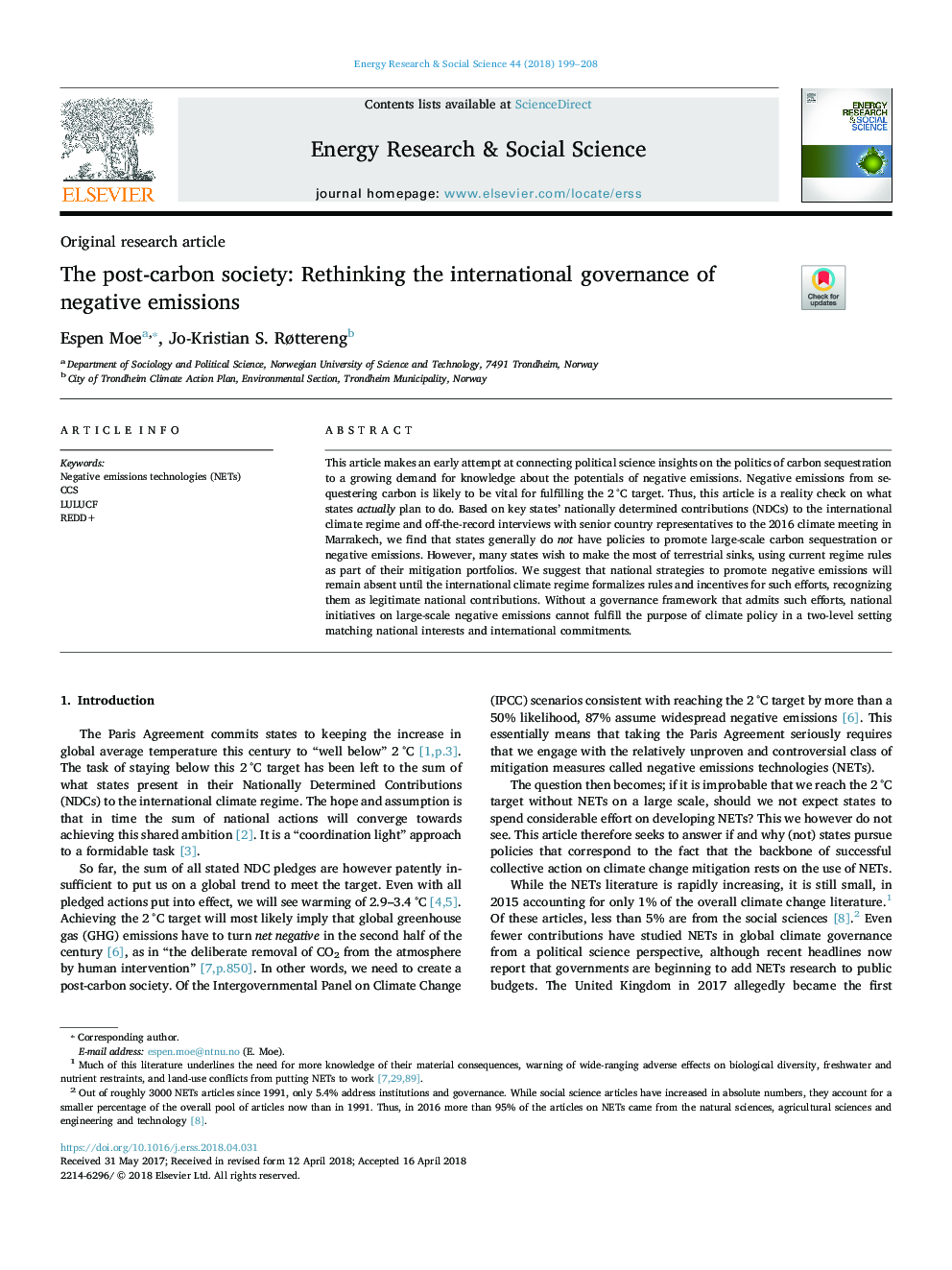| Article ID | Journal | Published Year | Pages | File Type |
|---|---|---|---|---|
| 6557192 | Energy Research & Social Science | 2018 | 10 Pages |
Abstract
This article makes an early attempt at connecting political science insights on the politics of carbon sequestration to a growing demand for knowledge about the potentials of negative emissions. Negative emissions from sequestering carbon is likely to be vital for fulfilling the 2â¯Â°C target. Thus, this article is a reality check on what states actually plan to do. Based on key states' nationally determined contributions (NDCs) to the international climate regime and off-the-record interviews with senior country representatives to the 2016 climate meeting in Marrakech, we find that states generally do not have policies to promote large-scale carbon sequestration or negative emissions. However, many states wish to make the most of terrestrial sinks, using current regime rules as part of their mitigation portfolios. We suggest that national strategies to promote negative emissions will remain absent until the international climate regime formalizes rules and incentives for such efforts, recognizing them as legitimate national contributions. Without a governance framework that admits such efforts, national initiatives on large-scale negative emissions cannot fulfill the purpose of climate policy in a two-level setting matching national interests and international commitments.
Related Topics
Physical Sciences and Engineering
Energy
Energy (General)
Authors
Espen Moe, Jo-Kristian S. Røttereng,
